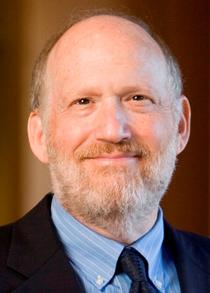Ethical Conflicts in Advance Care Planning with Marvin Swartz, MD
Ethical Conflicts in Advance Care Planning
 Psychiatric advance directives (PADs) are legal documents that allow individuals to express their wishes for future psychiatric care and authorize a legally appointed proxy to make decisions on their behalf during incapacitating crises. PADs promote self determination, autonomy, and offer an alternative to coercive interventions that sometimes accompany crises for people with mental illness. In this workshop, Marvin Swartz will provide information on PADs, including their use, importance, and ethical issues that arise with their use. Among these is the “Ulysses contract,” which raises questions of identifying the “authentic client.” Should PADs honor decisions made by the person when considering eventualities or the person he or she has become on account of dementia or an episode of mental illness? Using case vignettes, Dr. Swartz will help us explore ethical conflicts that emerge in practice.
Psychiatric advance directives (PADs) are legal documents that allow individuals to express their wishes for future psychiatric care and authorize a legally appointed proxy to make decisions on their behalf during incapacitating crises. PADs promote self determination, autonomy, and offer an alternative to coercive interventions that sometimes accompany crises for people with mental illness. In this workshop, Marvin Swartz will provide information on PADs, including their use, importance, and ethical issues that arise with their use. Among these is the “Ulysses contract,” which raises questions of identifying the “authentic client.” Should PADs honor decisions made by the person when considering eventualities or the person he or she has become on account of dementia or an episode of mental illness? Using case vignettes, Dr. Swartz will help us explore ethical conflicts that emerge in practice.
Marvin Swartz, M.D, is professor and head of the Division of Social and Community Psychiatry at the Duke University School of Medicine, Vice Chair for Clinical Services, Director of the Duke AHEC Program and Director of the National Resource Center on Psychiatric Advance Directives. He has written extensively on the psychiatric advance directives, mental health services for persons with severe mental illness, mandated community treatment, outpatient commitment, and the effectiveness of involuntary outpatient commitment, psychiatric advance directives, and antipsychotic medications. Dr. Swartz has served as a member of the MacArthur Foundation Research Network on Mandated Community Treatment, in which he participated in discussions on the role of legal tools such as Psychiatric Advance Directives in improving outcomes for persons with severe mental illness. Dr. Swartz was a CO-PI of the NIMH Clinical Antipsychotic Trials of Intervention Effectiveness (CATIE) for Schizophrenia. He was won numerous awards for his teaching, research and patient advocacy. He maintains an active NC list serve among mental health practitioners on salient news items.